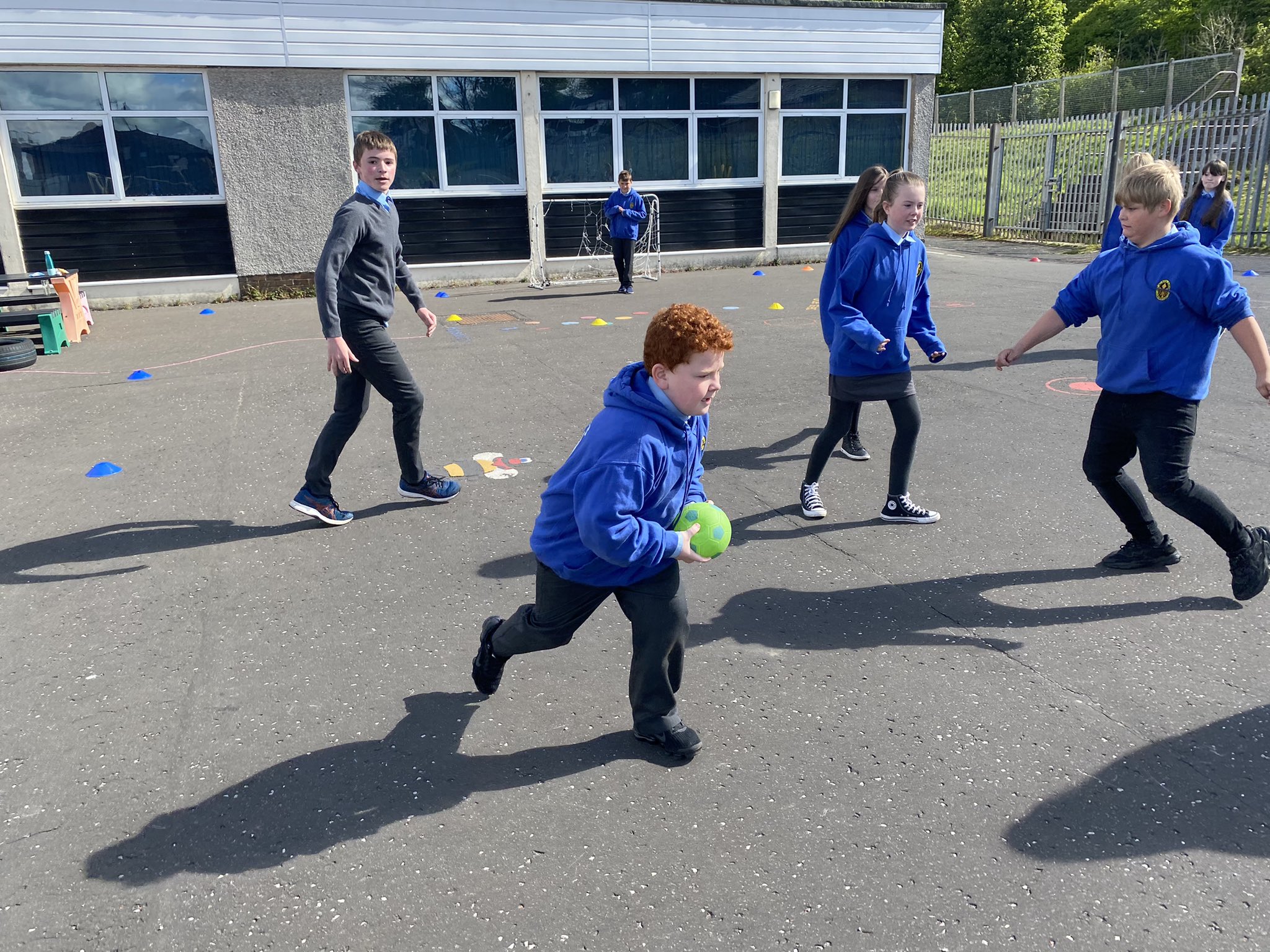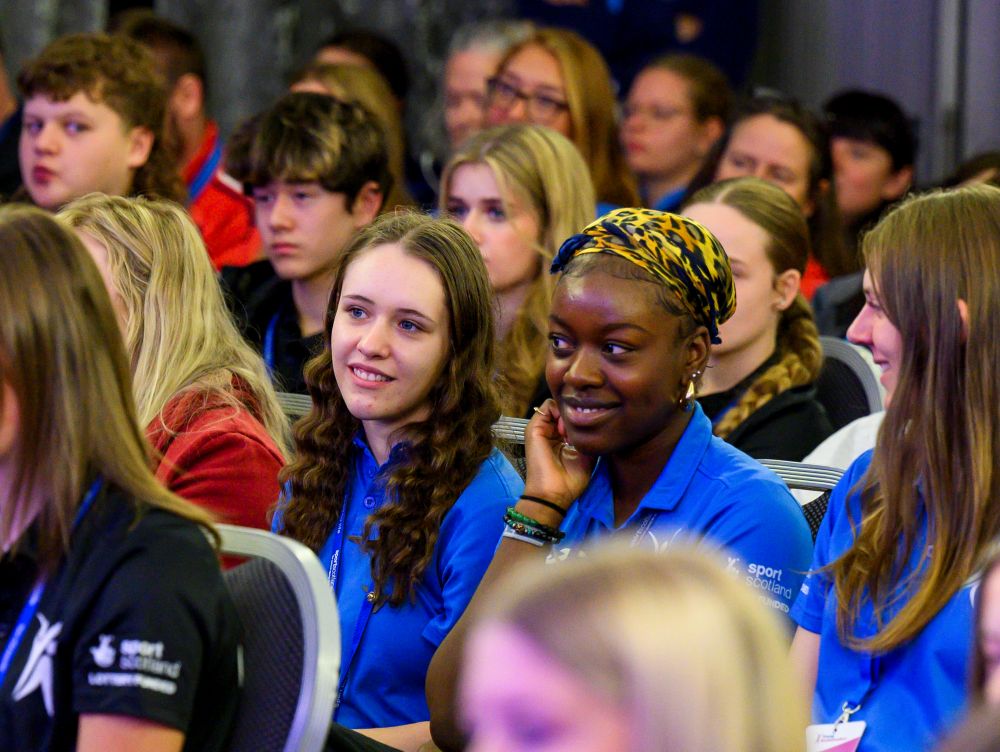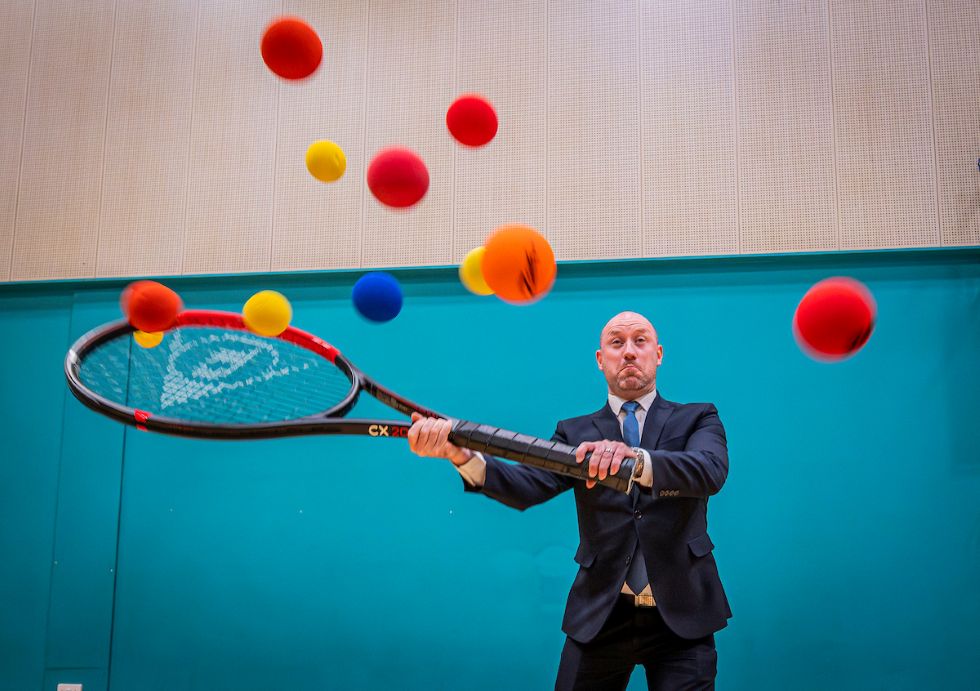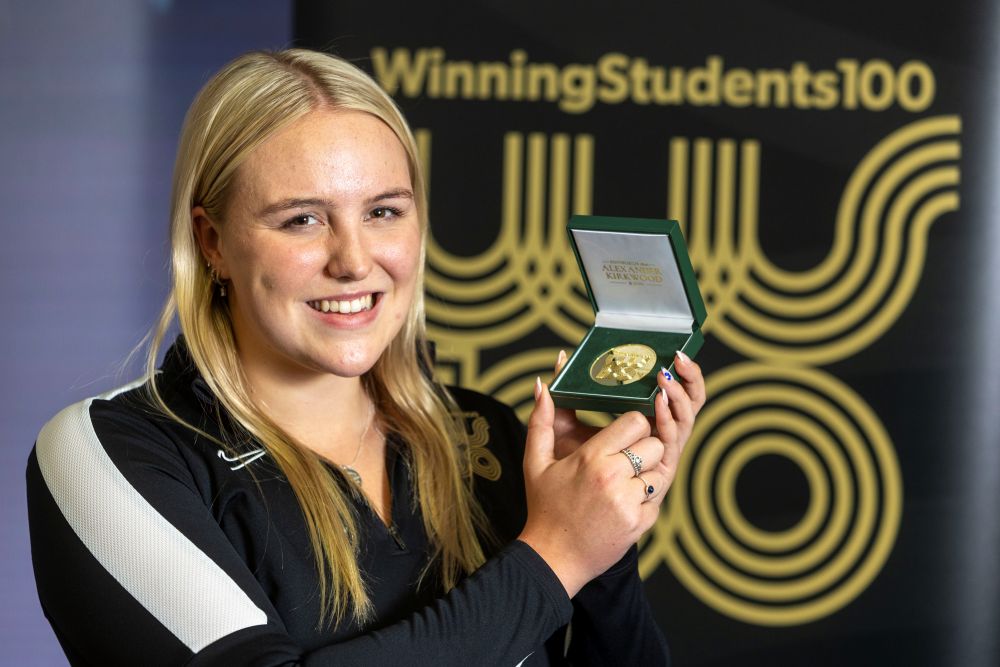Internationally, the sport of Handball ranks among one of the most popular team sports - boasting around 30 million registered players worldwide. Its appeal lies in its fast-paced action and high scoring — a solid blend of physical activity and mental challenges.
However, beyond the sports competitive edge, Handball can be a great sport for developing young people’s fundamental physical literacy skills. The core movements learned foster essential motor skills that underpin lifelong physical activity, as well as exposing young players to the fun and joy such movement can bring, so it is truly a win-win for everyone. Additionally, the game’s minimal equipment requirements make it easy to set up and inclusive for players of all ages and abilities to get involved.
At the Scottish Handball Association (SHA), there is a firm belief that handball holds an exciting future in Scotland, particularly as a team sport within the education sector.

Ewan Hunter, CEO of the SHA said;
“We recognise there is a big opportunity for us. [Handball is] one of the biggest sports across many parts of Europe, that we know will carry huge appeal across Scotland. It also gives us a huge opportunity to learn from our colleagues across Europe about what works well for them and help spark ideas for us here in Scotland.”
Accordingly, the SHA is actively driving a strategic plan aimed at embedding Handball into the school curriculum and broadening participation across the country.
A Three-Year Plan
In September 2022, the SHA formalised a landmark agreement with the European Handball Federation (EHF) under what they call their ‘Master Plan’ project, designed to develop Handball sustainably across the European member nations.
The initiatives target group is young people aged 8 to 17, further broken down into primary (8–11 years) and secondary (12–17 years) school levels.
The overarching goal is to create a lasting Handball culture in Scotland, which increases participation and builds a strong infrastructure around coaching, competition, club development and eventually onto international representation moving forward.
Primary School Engagement
The first initiative of the ‘Master Plan’ focuses on primary schools, aiming to make handball a key indoor sport for children aged 8 to 11. This phase of the plan initially centred on working closely with up to fifteen selected local authorities to embed Handball into class time, delivered by trained teachers, sport leaders, or student sports leaders. Given the amazing reception of the programme, that number quickly grew to include many more local authorities across Scotland.

Ewan Hunter explained; “At primary school level, Handball is the most fantastic sport for general physical literacy, with great hand-eye co-ordination and team building skills. It is played with everyone, and because of the nature of the sport, there is always a place for everyone on the Handball court.”
The standout achievement accomplished by the SHA within this phase is the truly remarkable 500% increase in young participants since the project began, soaring from approximately 5,000 to 25,000 young players across Scotland.
This surge was fuelled by an aggressive upskilling of over 6,000 Scottish teachers and sports leaders, equipping them to teach handball confidently and effectively.
Mini Handball
Recognising that children need a tailored approach to the sport, the SHA promotes "Mini Handball"—a scaled-down, adapted version of the game designed for younger players.
Mini Handball is played five-a-side on smaller courts with smaller balls, allowing children more touches, passes, and goal attempts. Crucially, physical contact is also minimised to focus on the development of technical and tactical skills.
This adaptation has proven invaluable in schools, where children learn the game’s fundamentals in a friendly, inclusive environment that encourages participation and skill development. Whilst this adaption ‘doesn't always look quite like the full version of Handball’, it often starts to develop the basic skills required to develop the game.
The Next Steps
The second phase of the Master Plan will look to extend Handball’s reach into secondary schools.
 This initiative targets increasing the number of schools offering handball in their curriculum and establishing a strong competitive structure with regional and national tournaments.
This initiative targets increasing the number of schools offering handball in their curriculum and establishing a strong competitive structure with regional and national tournaments.
By September 2024, 100 secondary schools were delivering handball, hitting the project’s goal exactly. However, predictable challenges remain in boosting participation among girls aged 15 to 17, where registration targets have not yet been met.
This year, the SHA have now also launched the pilot year of their Handball scholarship with Heriot-Watt University and Oriam, and alongside a growing list of competitions and opportunities to participate here in Scotland (SHA-organised events or those organised in conjunction with partners like the Governing Bodies in Ireland and England) and abroad with the National Academy, the future looks bright.
The Future
The SHA’s three-year Master Plan project has not only expanded participation but fundamentally transformed the landscape for handball in Scotland. While the senior player base remains relatively small, it is anticipated to grow organically from the solid foundation laid with youth players and expanded coaching capacity. Ewan Hunter, CEO of the Scottish Handball Association looks forward with hope for the future;
“We are looking forward with cautious optimism - we have a great team in place, from the Board to every single of our Executive team - to our players, volunteers, club officials and partners and we know that we have an amazing story to tell ... but that we are still just at the beginning!”




